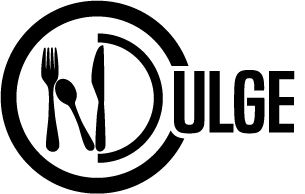When to Call a Restaurant Consultant: 8 Critical Moments to Seek Expert Help
- nlee
- May 14, 2025
- 4 min read

It's Never Too Late—but Earlier is Better
In high-level operations, timing is everything. Proactively engaging a consultant gives your leadership team more strategic options, greater control, and measurable ROI. The longer you delay, the more constrained your options become—budgets tighten, timelines shrink, and course corrections become more reactive than intentional.
The best time to call a consultant isn’t when you're already underwater—it’s when you're forecasting change, scaling growth, or simply want to tighten execution. Knowing when to call a restaurant consultant can be the difference between reactive course correction and proactive growth. Top consultants offer complimentary 30–60-minute consultations to gain clarity on your needs and provide an objective, solutions-focused outlook.
Think of a consultant as an external operations strategist—one who brings clarity, structure, and speed to execution. Their value lies not just in ideas, but in implementation. However, it's important to understand that consultants are brought in to initiate and execute change—not to manage those changes indefinitely. Once the engagement ends, it's up to your leadership team to carry forward the systems, standards, and strategies established during the consulting period.
And remember: the consultant you hire doesn’t need to be local. In fact, those with a national or international client base often bring broader, more creative solutions to the table. They've seen a wide range of business models, cultural dynamics, and operational challenges—and can often connect dots that a local-only consultant may not recognize. The right partner will immediately begin by asking the right questions:
What are your biggest operational challenges?
What are your end goals—scaling, maximizing EBITDA, preparing for exit, reducing inefficiencies?
What drives your brand (flagship products, guest experience)?
Where are your strongest revenue channels?
What future obstacles might derail progress beyond your current concern?
What does success look like in 6, 12, and 24 months?
What percentage of revenue comes from dine-in, takeout, delivery, or catering?
Are your managers leading or reacting?
What data do you track—and what are you acting on?
Do your team members know what success looks like daily?
The more insight you provide upfront, the more strategic and actionable their support becomes. For COOs, CEOs, and VPs of Operations, bringing in an outside expert isn’t a sign of failure—it’s a mark of proactive, results-driven leadership.
Running a restaurant can feel like spinning dozens of plates at once. Between staffing, food costs, guest satisfaction, and daily operations, it's easy for things to start wobbling out of control. Here are eight clear indicators that show when to call a restaurant consultant—or engage in a strategic operational assessment to avoid deeper issues later:
1. Before High Season or When Things Are Going Well — When to Call a Restaurant Consultant
Opportunity Insight: Avoid leaving money on the table.
Consultant Approach: Maximize revenue, improve guest experiences, implement hospitality workshops, and structured upselling seminars.
2. Regular Maintenance Assessments
Consultant Quarterly Reviews:
BOH efficiency
FOH sales, guest experience (hospitality, product knowledge)
Labor scheduling efficiencies
Cleanliness, repair and maintenance
Capital expenditures (CAPEX)
Purveyor contract negotiations based on current/projected volumes
3. Rolling Out New Projects
Consultant Assistance: Expertise in complex areas such as buildouts, kitchen layouts, and schematic redesigns to ensure smooth project implementation and reduced risk.
Strategic Guidance: Consultants can put the pieces of the puzzle together—not only building out the steps of a project but also guiding owners and operators toward the end goal.
Seasonal Menu Rollouts: Consultants also support limited-time and seasonal menu initiatives—from costing and recipe tasting to BOH execution and FOH product knowledge and sales tactics—ensuring alignment between back-of-house readiness and front-of-house selling confidence.
4. Persistent Decline in Profits — Restaurant Profitability Strategies
Timeline to Act: After two consecutive months of declining profits compared to last year.
Consultant Focus: Cost control, menu pricing strategies, operational inefficiencies.
5. High Employee Turnover
Cost Insight: Average training cost per employee (FOH/BOH): $2,000–$3,500.
Consultant Value: Structured training programs, role clarity, positive workplace culture (Cost ~$100/hour vs. turnover expense).
6. Stagnant Sales — Increase Restaurant Sales
When to Act: If sales plateau or decline for more than three months.
Consultant Solutions: Evaluate menu, service quality, and suggest innovative revenue streams and profit centers.
7. Poor Guest Feedback
Critical Response Time: Within one month of repeated negative feedback.
Consultant Action: Revamping or refreshing training programs to directly address guest complaints (service speed, food quality, staff interactions).
8. Operational Chaos — Restaurant Operations Consulting
Action Timeline: Persistent chaos lasting more than two weeks.
Consultant Intervention: Implement leadership training, operational systems, reduce drama, and enhance productivity.
Interviewing a Consultant
A thoughtful vetting process can make all the difference in choosing the right partner. When evaluating potential consultants, ask the following questions to ensure legitimacy, expertise, and alignment with your goals:
Can you share relevant case studies or success stories?
What specific areas do you specialize in?
How do you define and measure success?
Do you provide a clear timeline and milestones for deliverables? Is there a performance guarantee?
Are there any hidden costs beyond your hourly or project rate?
Do you have established partnerships or alliances within the industry (e.g., technology providers, vendors, or training platforms)?
Are you actively involved in industry changes, such as attending or speaking at conferences and hospitality expos?
Recognizing these signs early—and acting on them—can be the difference between reacting to problems and getting ahead of them. If you're ready to elevate performance, tighten execution, or scale intelligently, now is the time to act.
Ready to optimize your restaurant’s performance and stay ahead? Reach out today to explore how professional guidance can help you excel. Contact Us







Comments